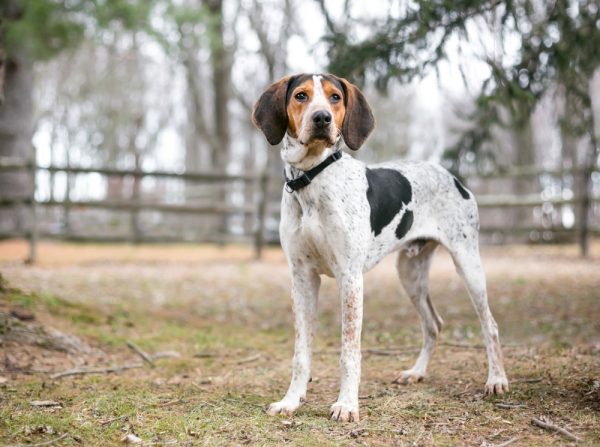Candy canes are fun and tasty seasonal treats that appear everywhere around the winter holiday season. If you have cats or kids, it’s likely that a candy cane will find its way onto the floor sometime during the festivities, and your dog may decide to eat it, whether it’s because they’re just curious or seeking a crunchy treat. However, dogs should not eat candy canes.
Read on to find out what you need to know about dogs and candy canes.

Can Dogs Eat Candy Canes?
No, dogs should not be allowed to eat candy canes. There are multiple reasons that candy canes can be dangerous for dogs, and not all of these reasons are related to the ingredients in the candy itself.
Sugar-free candy canes are far more dangerous for dogs than regular candy canes, but all candy canes and peppermint candies in general should be avoided for canines. Toxic ingredients for dogs abound in peppermint candies, and if your dog consumes these or candy canes, you should contact your vet or a pet poison helpline to get further guidance.
If you need to speak with a vet but can't get to one, head over to PangoVet. It's our online service where you can talk to a vet online and get the advice you need for your pet — all at an affordable price!
Why Are Candy Canes Dangerous?
Sugar-free candy canes can contain xylitol, which is a common sugar replacement in candies. Unfortunately, xylitol is extremely dangerous for dogs.1 Consumption can lead to seizures, hypoglycemia (low blood sugar), liver failure, and sadly, even death.
There are no safe levels of xylitol for dogs, so even if your big breed consumes one small sugar-free candy cane, you should reach out to a vet for guidance. Signs of xylitol poisoning include staggering, lethargy, weakness, vomiting, collapse, and seizures.

Even with regular sugar candy canes, there are concerns because peppermint is mildly toxic to dogs. If your pup consumes candy canes, there is a risk of stomach upset occurring. While this is typically not serious, your dog will be uncomfortable with abdominal pain and diarrhea, and they may keep you up all night needing to run outside to potty.
The shape of candy canes can also pose a choking hazard, especially for small dogs and puppies. Dogs that tend to swallow items whole instead of chewing them up can potentially choke on candy canes.
The other concern with candy canes is their plastic wrapper. While it’s unlikely that the wrapper will cause problems, there is still a risk that it will lead to choking in your dog. It also may be difficult for your dog to pass the wrapper through their digestive tract, and plastic is not digestible.

In Conclusion
If your dog consumes candy canes, you should reach out to your vet or pet poison control at a minimum. Check the label if you have the package. It is extremely important for you to determine if the candy canes contain xylitol or not.
For regular candy canes, once the candy cane is consumed, the risk is generally limited to digestive irritation and discomfort. Candy canes containing xylitol can be deadly for your dog, though, so determining if this ingredient is present can be a matter of life and death for your pup.
See also:



















